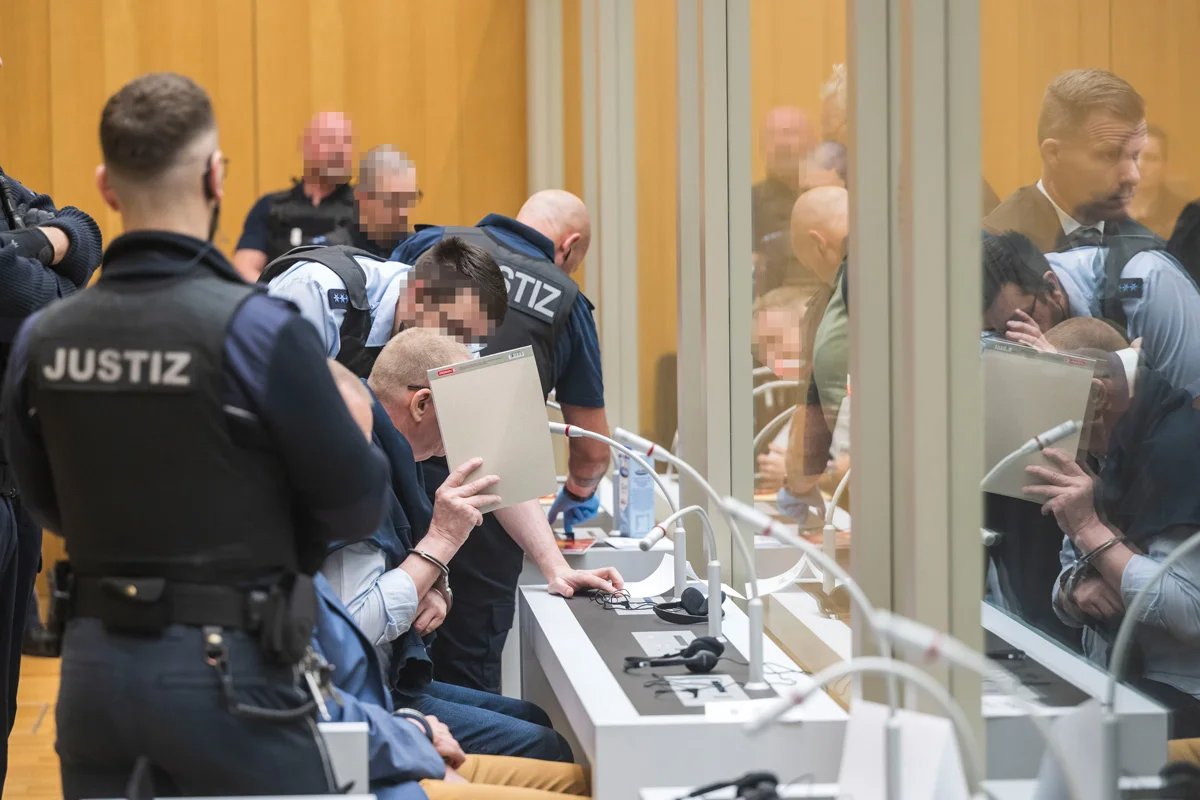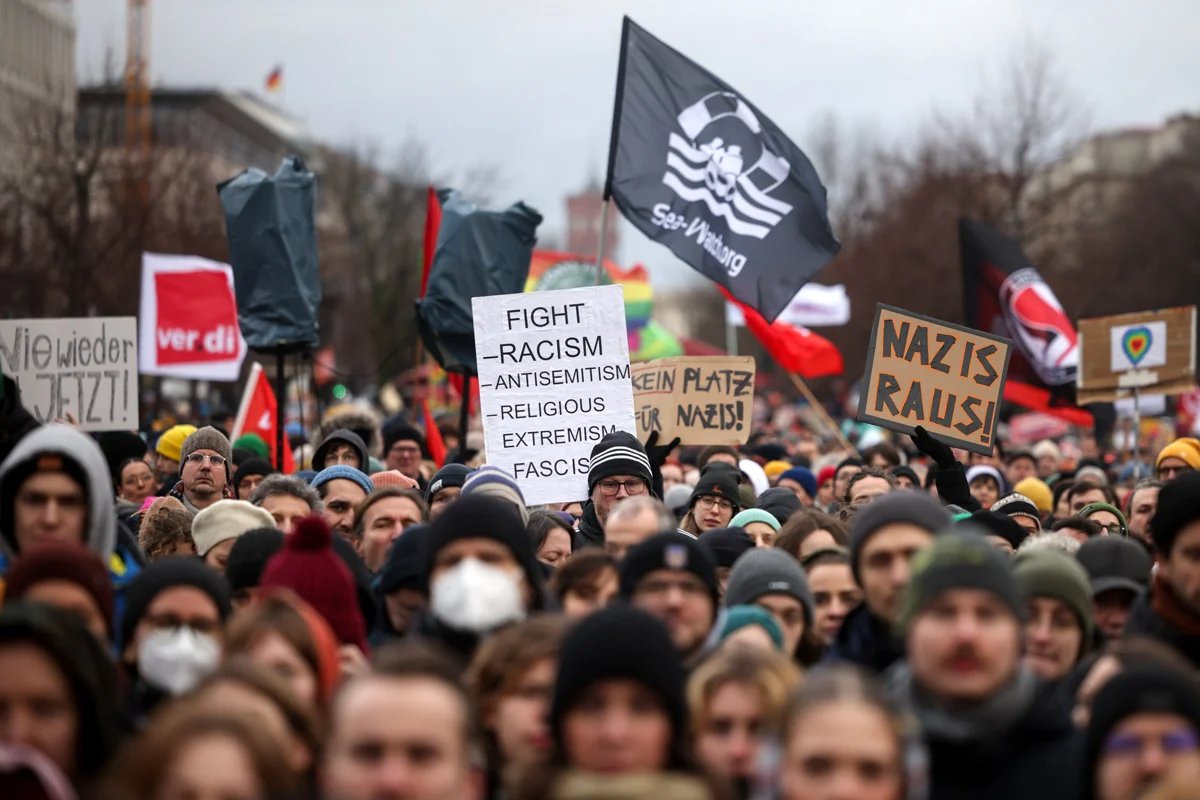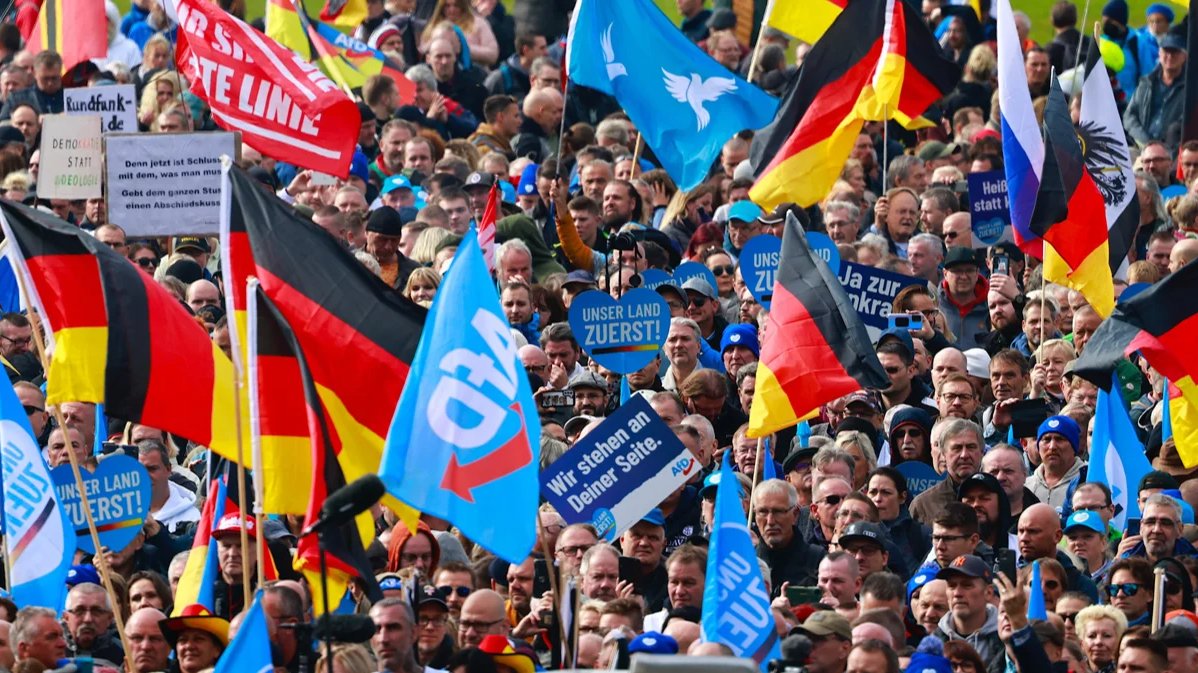Earlier this week, the European Commission announced it would expand Czech sanctions imposed on media outlet Voice of Europe earlier this year to the entire EU, as a scandal around Russia's alleged attempts to influence the outcome of next month’s European elections rumbled on.
According to Belgian Prime Minister Alexander De Croo, the outlet paid various MEPs, particularly members of Germany’s far-right Alternative für Deutschland (AFD), to disseminate Russian propaganda in an influence operation.
Political scientist Anton Shekhovtsov, whose academic research at Central European University focuses on Russian political influence in Europe, told Novaya Europe how links between Russia and the European far right developed and what the Kremlin gains from the arrangement.
NGE: You recently wrote about the planned coup orchestrated by a far-right group in Germany. Could you tell us what happened and what involvement Russia had?
AS: My chapter covers events that occurred in Germany in 2021 and 2022, when a plot to overthrow the government was orchestrated by German far-right group Patriotic Union. This group is part of the broader nationalist Reichsbürger movement, whose members reject the legitimacy of modern Germany and instead consider themselves citizens of the German Reich that existed from 1871-1945.
The Patriotic Union developed the idea that they could conquer Germany with help from its “allies” in Russia and the US, which was led by Donald Trump at the time. They wanted these allied forces to carry out a coup d’état that would allow them to restore the German Reich. They were well prepared, they had weapons, money, gold, and plans on how to storm the Reichstag. But in the end they were caught [by the security services].

The trial of the Reichsbürgers in Stuttgart, Germany, 29 April 2024. Photo: Thomas Lohnes / EPA-EFA
NGE: Were these so-called allies, Russia and the US, aware of these plans?
AS: When I began my research, I wondered how they ended up with this insane idea that Russia and the US were their allies. But my work shows that they were inspired by Russia’s actions. Their logic was that if Russia helped separatists in Ukraine in 2014, why wouldn’t they help Germany? And if Russia cooperated with a far right party like the AFD, why wouldn’t they work with them?
They made substantive efforts to make contact with the Russian government and met with diplomats on several occasions. But as I understand it even the Russians thought they were mad.
NGE: So rather than Russia seeking out these allies, it tends to be the far-right parties reaching out themselves?
AS: Yes, and that’s the way it’s always been. The far right is the first to offer its cooperation to the Kremlin. Russia then decides whether it can use these players to exert influence. For example, the far-right Austrian Freedom Party switched to a pro-Russian position in 2008–2009. They spent a very long time reaching out to the Russians, and it was only in 2016 that United Russia signed a cooperation agreement.
NGE: Why does the far right see Russia as a potential ally?
AS: Because Russia presents itself in opposition to the US, challenges the international status quo and, importantly, the West’s liberal democratic political consensus. Russia is also a key regional player, a psychologically significant status for the far right, which is at pains to show that it is not marginalised, that they are allied with major geopolitical players.
NGE: Why does Russia need the far right’s support and what benefits has it brought the country?
AS: Marginal forces that receive Russian support never become significant political players. This seems to benefit Russia. These individuals are drawn into certain schemes, even criminal ones, and do things that no other self-respecting politician would do.
The invasion of Ukraine made Russia too toxic for many of its far-right allies to be associated with. Marine Le Pen unequivocally condemned Russia’s actions from the outset. Previously there was strong pro-Russian sentiment among the members of the French far right, but even for them this has now become a liability. But that’s not always the case. The AFD is Germany’s main far-right party and probably the largest pro-Russian political force in Europe. After the full-scale invasion of Ukraine, their pro-Russian sentiments, it seems to me, only intensified. There is also Hungary’s ruling far-right party Fidesz.
NGE: Is the Kremlin supporting Germany’s AFD?
AS: If we’re talking financially, party members reportedly received payments which the German authorities are investigating. But financial support seems to me to be overrated, support in the media is much more important.

A protest against Germany’s far-right AFD in front of the Brandenburg Gate in Berlin, Germany, 14 January 2024. Photo: Clemens Bilan / EPA-EFA
NGE: After RT was blocked in Europe, Telegram channels sprang up which spread Russian propaganda to an international audience in various languages. They seem fringe and publish false information. Can they really provide effective support to Russia?
AS: Russian propaganda is very effective, I would say. These channels are very marginal, but that doesn’t matter. Where they came from doesn’t matter. The main thing is that they end up in the mainstream.
For example, a narrative sprang up that Zelensky bought yachts with the money given to Ukraine by the US and that his wife spent hundreds of thousands of dollars in boutiques during a trip to America. This information first appeared on an awful, trashy website and was cited by one source. But eventually the story reached the masses and was even discussed in Congress.
So the source isn’t important, it’s the quantity of information that is the key to propaganda’s success. No matter how crazy stories seem, if there are hundreds from different sources they seem more believable.
NGE: How many Russian propaganda networks, aside from RT, are working in Europe?
AS: To be honest I don’t know. I investigated Voice of Europe, the organisation registered in Czechia that spread anti-Ukrainian narratives. They used politicians from Germany, France, Poland, Belgium, the Netherlands and Hungary to influence the upcoming European parliamentary elections. Journalists say they were paid during secret meetings in Prague or with cryptocurrency.
There is also the Social Design Agency, which made copycat websites of established news outlets such as the BBC, Die Welt, Le Monde. They copied the website design and published disinformation and propaganda there, and promoted it via Telegram, Facebook and Twitter. They even photoshopped screenshots of the copycat websites displaying made up stories and shared them via messenger apps, which people are unlikely to double check.
NGE: Who is the target audience for such sites?
AS: They attack all elements of society. They don’t need to promote Russia, but rather oppose Ukraine. It’s the same narrative as some politicians, such as Slovakian Prime Minister Robert Fico. He says “we are for peace,” “we are against war,” “we are against Slovakia being involved in war”. You don’t need to be pro-Russia to play for Russia.
Moreover the Kremlin doesn’t need to invent anything new. This is straight from the Soviet propaganda playbook: supporting peace movements that are inherently anti-Western.
Hungary was the first to use this political peace narrative. Robert Fico has seen how that benefited Viktor Orbán: it turned out to be an extremely successful and effective way of getting him into office. It is pure political strategy.
NGE: So the rise of right-wing parties may lead to a lack of support for Ukraine, rather than direct support for Russia?
AS: Yes, the “for peace” narrative translates as “anti-Ukraine” because in a situation with an aggressor and a victim, the “for peace” slogan always benefits the aggressor. The irony is that in Russia you can end up in prison “for peace”.

